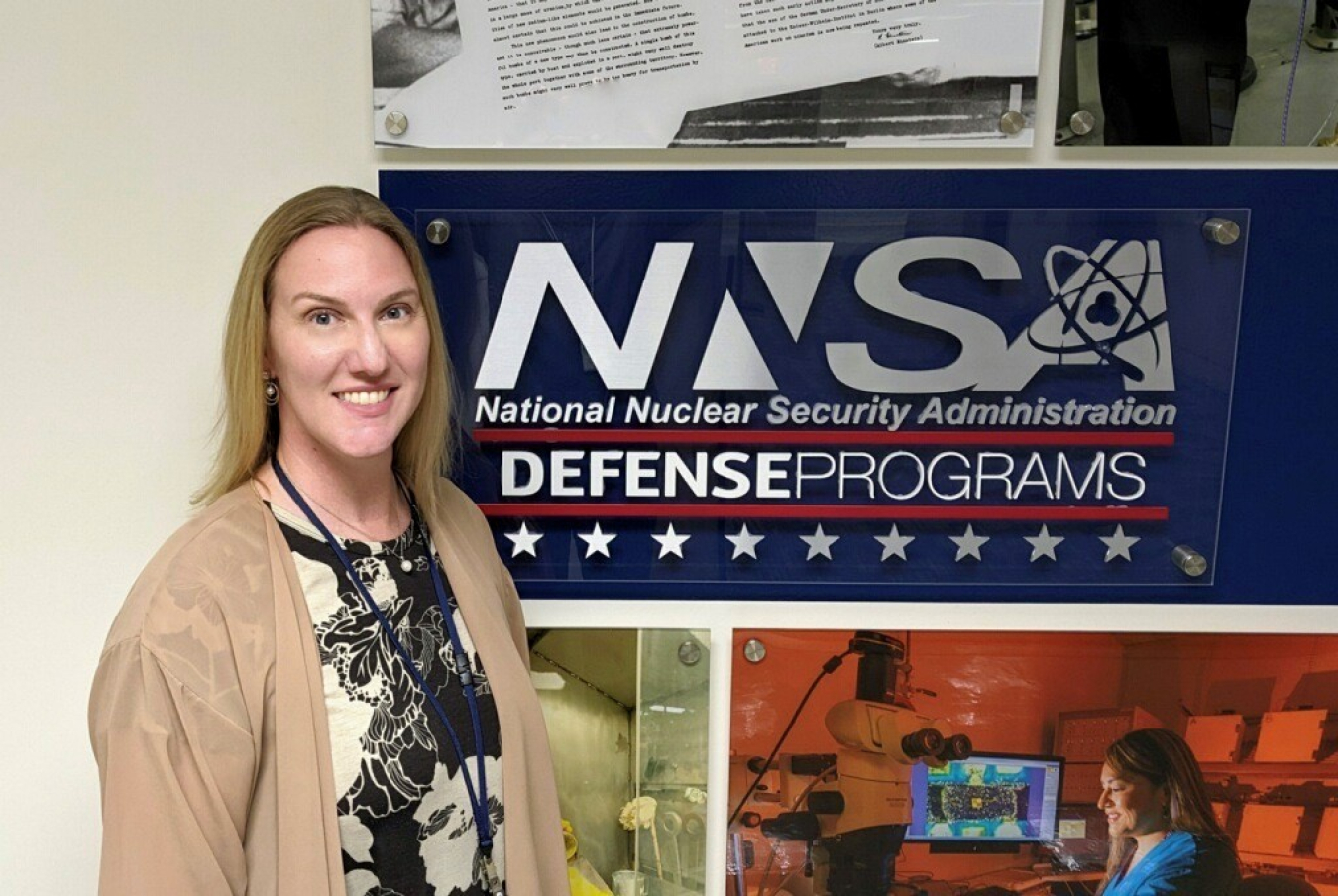In our fifth installment of the Women in Defense Programs series, meet Dr. Sarah Nelson. Within the Office of Research and Development, Dr. Nelson oversees some seriously cutting-edge science and facilities that support our nuclear stockpile.
National Nuclear Security Administration
September 29, 2022
In our fifth installment of the Women in Defense Programs series, meet Dr. Sarah Nelson. Within the Office of Research and Development, Dr. Nelson oversees some seriously cutting-edge science and facilities that support our nuclear stockpile. She has an important message for young women in STEM – don’t internalize the voices of the naysayers, or let them convince to back down from your dream career.
How do you support NNSA?
I am the Acting Office Director for the Office of Experimental Sciences since October 2021. Prior to that, I was the Deputy Director since November 2015, minus a one-year detail working research & development and Production Modernization interfaces.
The mission of the Office of Experimental Sciences is to ensure a resilient U.S. nuclear deterrence posture by delivering the world-class data, facilities, and scientific expertise required to undergird the effectiveness and responsiveness of the modern stockpile.
How did you become interested in the field you are in? How did you end up on this career path to this point?
I became fascinated with nuclear science back in 7th grade, when I was reviewing the periodic table of the elements. Upon learning that some elements can only be created in a laboratory with particle accelerators and live fractions of a second, I knew I needed to learn more about this, and I did everything a 13-year-old could with the local library. As I learned more, I became more fascinated with superheavy elements.
While I was finishing my BS in chemistry at UC Santa Barbara conducting materials science research, I continued to search for U.S. research groups in superheavy elements, and came across the Lawrence Livermore National Laboratory Seaborg internship program. Livermore was my first taste of “big” science, including walking through the National Ignition Facility while it was under construction, and this inspired me to apply to UC Berkeley for graduate school.
My dream was realized when I was accepted to UC Berkeley and the modern-day equivalent of Professor Glenn Seaborg’s research group. (He was the former Chairman of the Atomic Energy Commission (now DOE), Nobel Laureate, and most critically for NNSA, the person who discovered plutonium.) I completed my Ph.D. there studying those elusive superheavy elements.
Afterwards, I took a postdoctoral position at LLNL working on radiochemical diagnostics for the National Ignition Facility, while staying involved with the LLNL/Joint Institute for Nuclear Research superheavy element collaboration. I later took a staff position with Pacific Northwest National Laboratory on detail to the Defense Threat Reduction Agency Basic Research program here in the DC area, and nearly seven years ago, started my career with Defense Programs.
What’s one of your favorite things about working at NNSA?
The thing I love most about working at NNSA is how meaningful our work is. I know that the problems we are trying to solve are of national importance, and it feels good to know that we are doing our best to address them every day.
What are the characteristics of the best teams that you have been on?
The first characteristic which comes to mind is a shared investment in achieving your goal. The next is having a diverse group of people to take part in the body of work. For our office, that means staff with a variety of scientific expertise relevant to the stewardship challenges we are trying to solve, but staff with a wide variety of personal characteristics and different identities as well. Finally, I have found that when staff feel trusted and empowered to do their job, they do it their best.
What advice would you give someone who wants to do what you do for NNSA?
I would suggest that they follow their scientific curiosity wherever it leads them, and to see their degree through. Then, add on experience at an NNSA lab, plant, or site, so they can see that big science in action, and how that aspect of our business works firsthand.
As a woman in science, I have faced certain hardships, been given a lot of negative messaging about my interests, and at times outwardly discouraged from pursuing certain goals. To women who may be tempted to internalize those voices and back down from your pursuits, I recommend re-evaluating. Don’t let someone’s voice or opinion be mistaken for a vote, or for authority when they have none.
What do you like to do in your spare time?
I am a mother of two elementary-school aged children, and I love spending time with them and our new rabbit. I also work with the local high school marching band as a color guard instructor and am an aquarium hobbyist. I enjoy gardening when it isn’t too hot outside, and a good book when it is.

